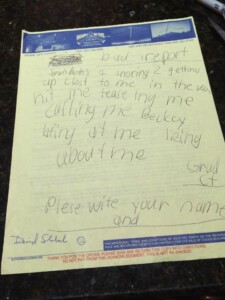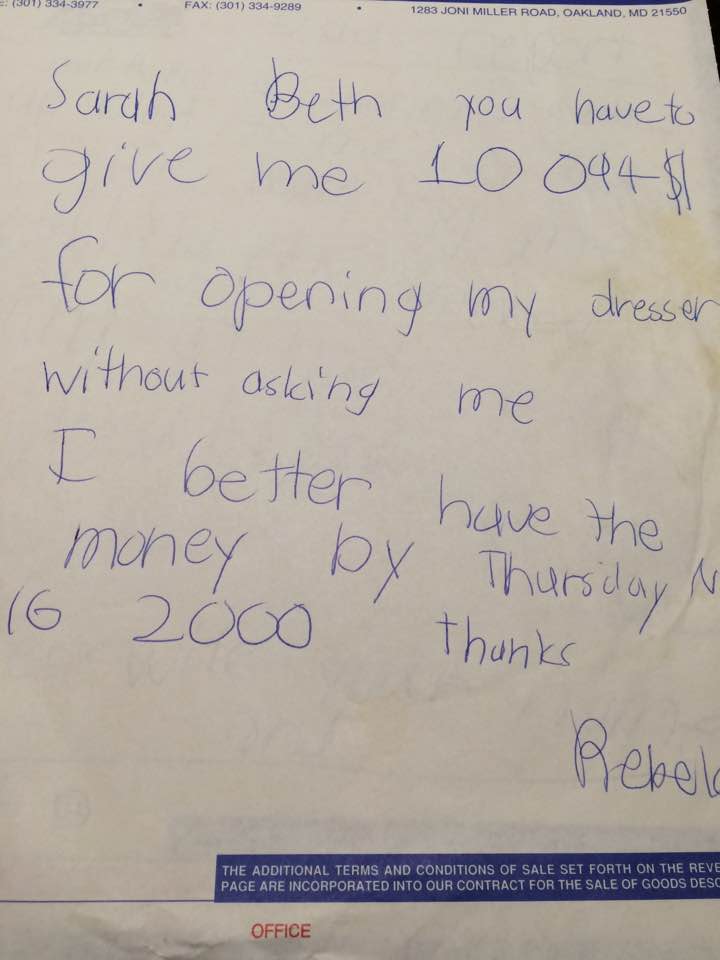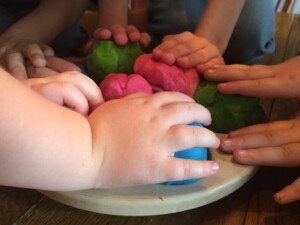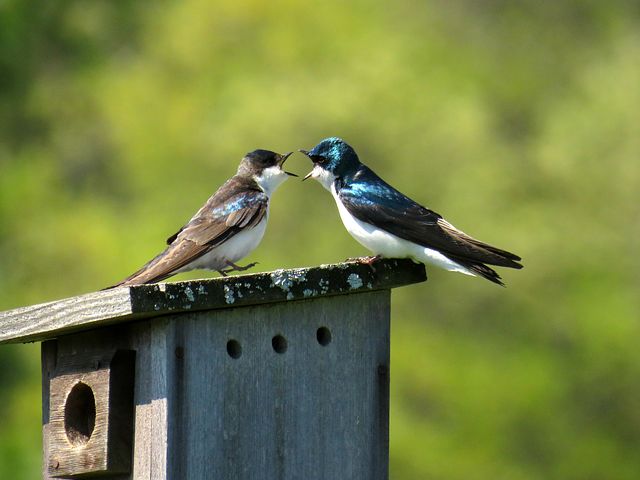On Raising Kids Who Tangle

Tangles and Not
Some days our kids tangled. Some days they played like the princes and princesses they were not. I’ve got proof in my file drawers of both kinds of days. In cleaning out those file drawers recently, I’ve laughed so much at the papers I found that I cried. Yet, I also recognize that the papers brought memories of some parts of parenting that were difficult.
It takes two to tangle.
That’s what my mother used to tell us (although I don’t think she used the word tangle.) A lone child can hardly fight with himself. When there are only two siblings, the discord is less because the two have to learn to play together if they’re going to have a playmate at home.
I’m a proponent of larger families (you can read about that here). I still think the “bennies” of a large family outweigh the “fits”, but I also recognize that there are things that happen among multiple siblings that don’t happen with two or fewer kids.

A passel of kids
One of the disadvantages of having a passel of kids is that certain ones can tend to take sides and pit one child against all the others. Sometimes it’s older ones against a younger one; sometimes it’s boys against girls. Other times it is personalities against personalities.
I experienced some of that as a child and I saw it happen among our own kids. It not only happens in homes, but it happens in school or church settings just as easily. It matters not if it’s a public school, Christian Day school, or homeschool, teachers can tend to gravitate to certain types of children that they connect with more naturally. I have seen this happen in all three of these schooling settings.

Tangle One: Sibling Groups Pitting Against Each Other
When you have children with differing personalities, those that tend to think and respond the same way will often unite in their disdain for the child or children who are “different” in talent, interests, or tastes. The minority tend to get shafted by the majority who don’t think the way they do. It’s a most natural progression, but a progression that needs to be recognized and stopped before it causes trouble. While we would never want to admit it, allowing our kids to treat each other in this way is really putting one group above the other – whether it’s at home, in school or in the church.
Tangle Two: Sibling Rivalry
Normal sibling rivalry can cause conflict. Children are naturally competitive, especially among their siblings or peers. Competition can be good as it challenges a child to do his best; yet, it can also lead to damaging rivalry. Sometimes rivalry happens because kids want attention, want to be “first” or don’t want to be tied to a chore. It’s important to recognize unhealthy conflict early. Don’t let it take root and fester. Like Barney Fife says, “Nip it in the bud!”
Comparing our kid with a sibling also adds to sibling rivalry. “Why can’t you make grades like your brother?” or “Why can’t you get along with others like your sister does?” or “I wish you were as responsible as your brother” are all ways parents add fuel to an already smoldering fire. Instead of building a case on a comparison, facilitate the celebration of differentness! This will help nix the rivalry.
Tangle Three: Parental Favoritism
Parental favoritism can cause conflict among children as well. It’s easy to see in others, but hard to see in ourselves. Kids will tangle more when the parents’ obviously favor certain ones. Whether it’s because a child is the same sex as the parent, looks more like his mother or father, or has abilities and talents that are enjoyed more by a particular parent, favoritism happens. When it is allowed to overtly raise its ugly head, unhealthy tangling among your troops is certain to result.
It happened with Isaac and Rebekah, one of the sets of parents recorded in the first book of the Bible. They had twin sons and each parent favored the son who was most like him or her. Isaac was a hunter and an outdoorsman and he easily connected with Esau who also liked the outdoors and enjoyed hunting. Rebekah, on the other hand, favored Jacob whose interests were more domestic. Since Isaac and Rebekah each had their favorite son, they pitted their boys against each other. Don’t believe me? Check out these verses.
As parents, we do well to recognize any of us can easily make that this parenting mistake. In the home of Isaac and Rebekah, conflict ensued with devastating results. Betrayal, lying, deceit, and ultimately a family separation resulted. This tragedy could have been avoided had Isaac and Rebekah made a conscious effort to connect with the twin who was least like them. Instead, they gravitated toward the one that thought and responded to life’s situations the way they did and emotionally abandoned their other son.
Conflict pyramids
When our youngest daughter became frustrated with her siblings’ irritations, she had one means to vent her feelings: giving consequences and grades for their actions and behavior. She’d make her list and fill out the “paperwork” [carbon copy papers from her uncle’s business employment] then bring the papers for one of her parents to sign. I usually told her to give it to her father who was willing to sign with a flourish.
Recently I asked older sister if she ever paid up on this bill! We’re all laughing now – but we recognize that our little pistol-whipping seven-year-old was frustrated because she wasn’t accepted in her own right with her different personality and interests which were so unlike her siblings.

Why am I telling you all this? I’m telling you because I know how difficult parenting can be.
I also know how easy it is to feel that we’re failing – when we really are not.
You’ll look back at the things that happened and the way your kids tangled and realize they really were learning interpersonal relationship skills. You’ll see how they learned to relate to others because of what they learned at home.
You won’t do it all completely right. You can’t because you’re human. Therefore you will make mistakes. There will be those have those “Stop the world and let me off!” days.

Lifelines
In those moments – and those tangle days – here are some lifelines you can grab.
- Help your kids find a way to untangle conflict themselves rather than interfering and doing it for them. It will groom them for life.
- Allow them to be individuals and don’t try to push them all into the same mold – encouraging them to be who God planned them to be, rather than who you’d like to see them become.
- Don’t play favorites or gravitate toward the one who is most (or least) like you – avoid that Jacob/Esau effect. Ask an objective parent to nudge you when they see that happening.
- Get advice from parents who you think are doing it (or did it) right. They will be glad to share their successes – and their struggles – to help you.
- Ask God for wisdom. He gives it freely when we ask. I know He is faithful because I’ve experienced that wisdom when I asked.







